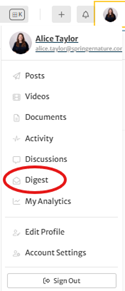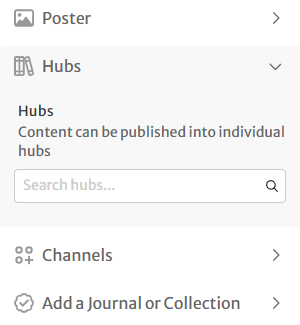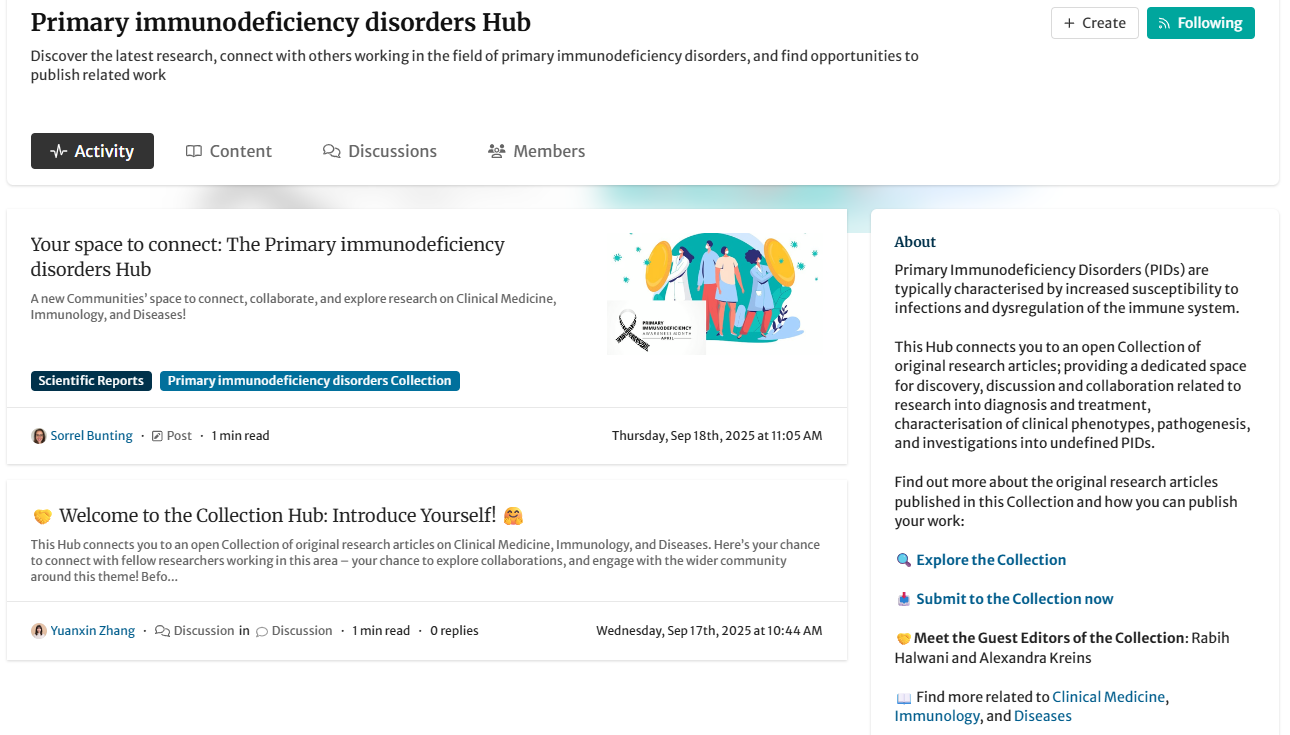Making the Most of Collection Hubs: Your Space to Connect, Collaborate & Discover
Published in Healthcare & Nursing, Astronomy, and Social Sciences

What Are Collection Hubs?
Springer Nature Collections are curated groups of articles within a journal that provide highly focused exploration of specific themes and emerging topics. Within the Research Communities, you can explore Collection Hubs; community-driven spaces that connect you with a global network.
Join a space built for collaboration. Whether you're exploring a topic, looking for opportunities to publish or tackling methodological challenges, the Hub connects you with others working in the field worldwide. You can also network with the Editors of the Collection – hearing directly from leaders in the field!
Explore blogs, Q&As, and discussions curated by editors, authors, and publishing professionals. Ultimately, the Collection Hubs aim to help you stay connected to the field, opportunities, and informed on emerging trends and challenges.
You can explore the Collection Hubs here
Follow the Hub
Follow a Hub by clicking ‘Follow’ at the top right of the Hub page. Stay up to date with new content and conversations in a Collection Hub by clicking ‘Follow’ at the top right of the page. This will ensure you get notified of new activities in the Hub via email.
Explore the latest!
Visit the Hub’s ‘Activity’ Tab to explore the latest discussions and posts, all in one place.
From here you can also get involved in conversations, get to know the team Behind the Collection, and find out more about opportunities to publish in the Collection – just take a look at the ‘About’ section on the right hand side.
Manage your email notifications

You can adjust the frequency of your Digest emails by clicking your profile image on the top right of the page. Click ‘Digest’ and then ‘Tailor your digest’. You can then choose between, Daily, Weekly, Monthly or no Digest emails.
You can also modify your preferences of other emails and notifications in the ‘Change Email Preferences’ section.
Join the conversation in Discussions
The Discussions section of the Hub is your space to share ideas, ask questions of the Editorial team, join conversations and learn from others working in this area. You will find it by clicking ‘Discussions’ at the top of the Hub.

To reply to a Discussion, open the Discussion and type your reply in the box labelled ‘What are your thoughts?’. You can also reply directly to replies under the comment by clicking ‘Reply’.
Explore the network
The Collection Hubs are new, but as they grow, so do your networks! You can explore and follow other Hub members by browsing the Member and Contributor directories. You can find them in the ’Members’ tab of the Hub, or on the righthand side of the ’Activity’ tab. Just be sure to follow the Hub so others can discover you too!
Share with the Hub
If you have published an article as part of a Collection, don’t forget to tag your Behind the Paper blog post to the relevant Collection Hub to help others discover it more easily!
To add your post to the Hub, go to the right hand menu on the blog creation page and click on the 'Hubs' section. Type the name into the 'Search Hubs' box, and select the Hub you're looking for. (Take a moment to check it's the right hub before you continue!).
You can also find out how to add a journal or Collection badge to your blog post here.
We hope you enjoy exploring our first Collection Hubs! If you have any questions about the Hubs, please get in touch with the team and we’ll be happy to help.
Follow the Topic
What are SDG Topics?
An introduction to Sustainable Development Goals (SDGs) Topics and their role in highlighting sustainable development research.
Continue reading announcement





Please sign in or register for FREE
If you are a registered user on Research Communities by Springer Nature, please sign in